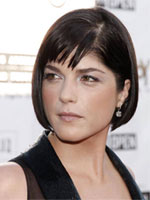For those that missed part 1 of this series, please read up here.
—
Ho Shou Wu, although not studied by western medicine, has a long history in Chinese medicine as a pro-hair herb. I have no idea if the shake would perform any better than a placebo. There are so many ingredients in his formulation that one might suggest that something in there will positively impact hair loss. To me, it is like a shotgun approach to the problem. It may actually work, but it is expensive and it is an unproven treatment. If I hear that there is a demand for his shake from our patients, I can order it for them. I’m interested in anything that makes outcomes better, regardless of the source.
We have seen people taking every imaginable supplement known to man, including antioxidants, HGH (human growth hormone), steroids, as well as those who use lasers and even PRP (protein rich plasma)… yet everyone doing these things are still losing their hair.
When doctors have compared identical twins, occasionally we see twins with different degrees of hair loss. Causes for this could include: smoking, exposure to sunlight, stress, and dietary/lifestyle differences. It is not that doctors have ignored these other epigenetic factors, but it reflects the medical profession’s ignorance of how these factors impact the genes we are dealt with. It appears clear to me that there are dietary and lifestyle factors that are influencing the epigenetics of male genetic balding and if we knew more, we could do more than prescribe finasteride and Rogaine to change them. It may also be the reason that laser light appears to have some influence, even from a placebo perspective.
Diet clearly is a very important factor. There was a mouse study that showed a fat yellow mouse placed on a particular diet became thin and gray, and in turn had thin, gray babies. Those offspring had thin gray babies on the same diet, but when the fat yellow mice who had turned thin and gray were again fed the original diet, they became fat and yellow again. This study illustrates the heritability of epigenetic influences and also the impact of diet in influencing the genetics of these mice. This opens up a whole new Pandora’s box for doctors. All of the treatments we have written off as “snake oils” or placebo effects often come from our patients or this blog that report that their hair grew better on such oral supplements. Could they have actually worked? Although I believe that DHT is a huge player in male genetic hair loss, it may not be the only important factor.
—
Part 3 (the finale) will be published tomorrow.
This post was in part taken from an email sent by the brilliant Dr. Sharon Keene in Tucson, Arizona.

 She describes motherhood as ‘amazing’, but Selma Blair has candidly revealed she is experiencing an unwanted side affect. The Cruel Intentions actress, 39, who gave birth to son Arthur Saint four months ago, has revealed she is suffering post-partum hair loss.
She describes motherhood as ‘amazing’, but Selma Blair has candidly revealed she is experiencing an unwanted side affect. The Cruel Intentions actress, 39, who gave birth to son Arthur Saint four months ago, has revealed she is suffering post-partum hair loss.